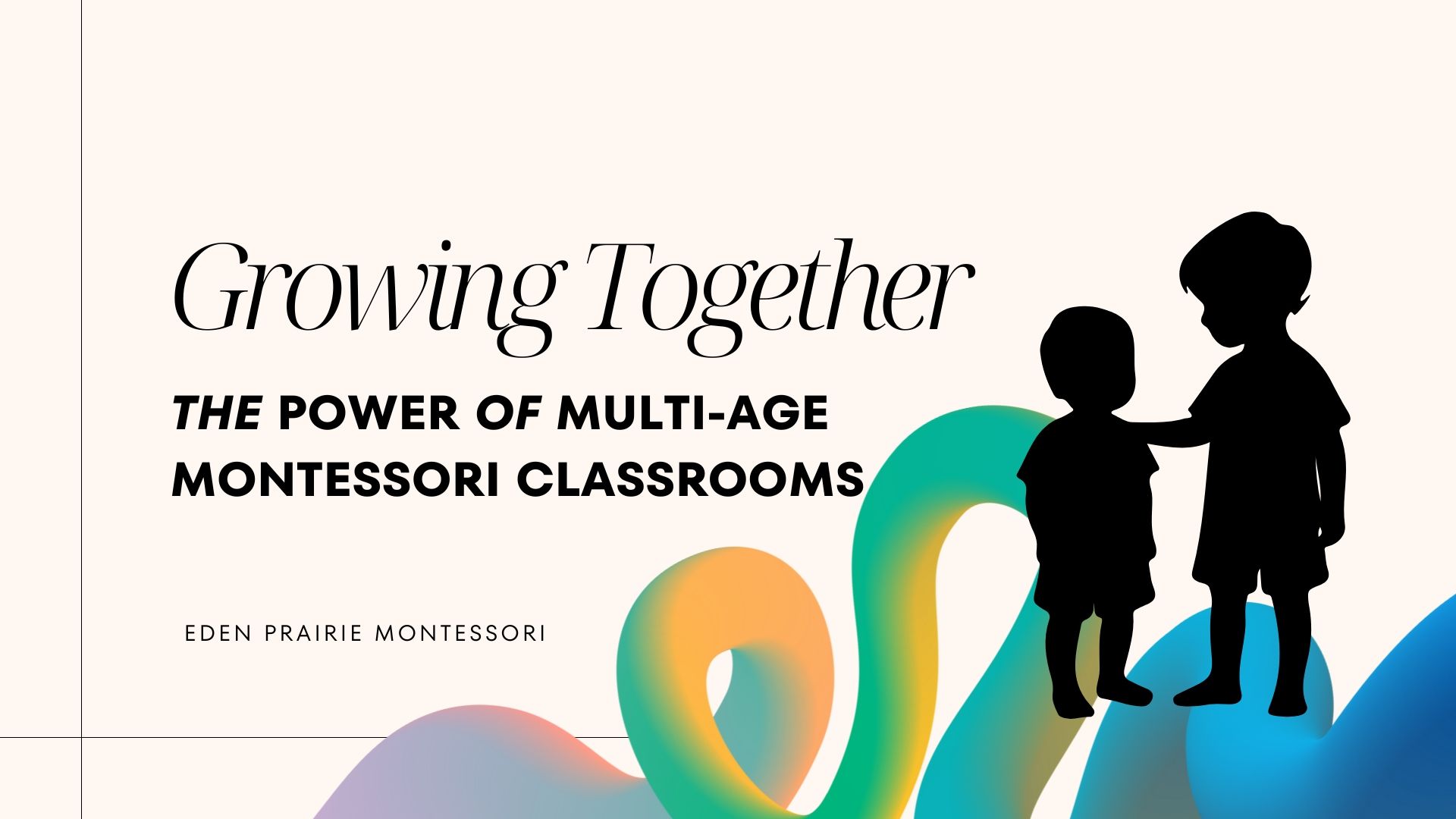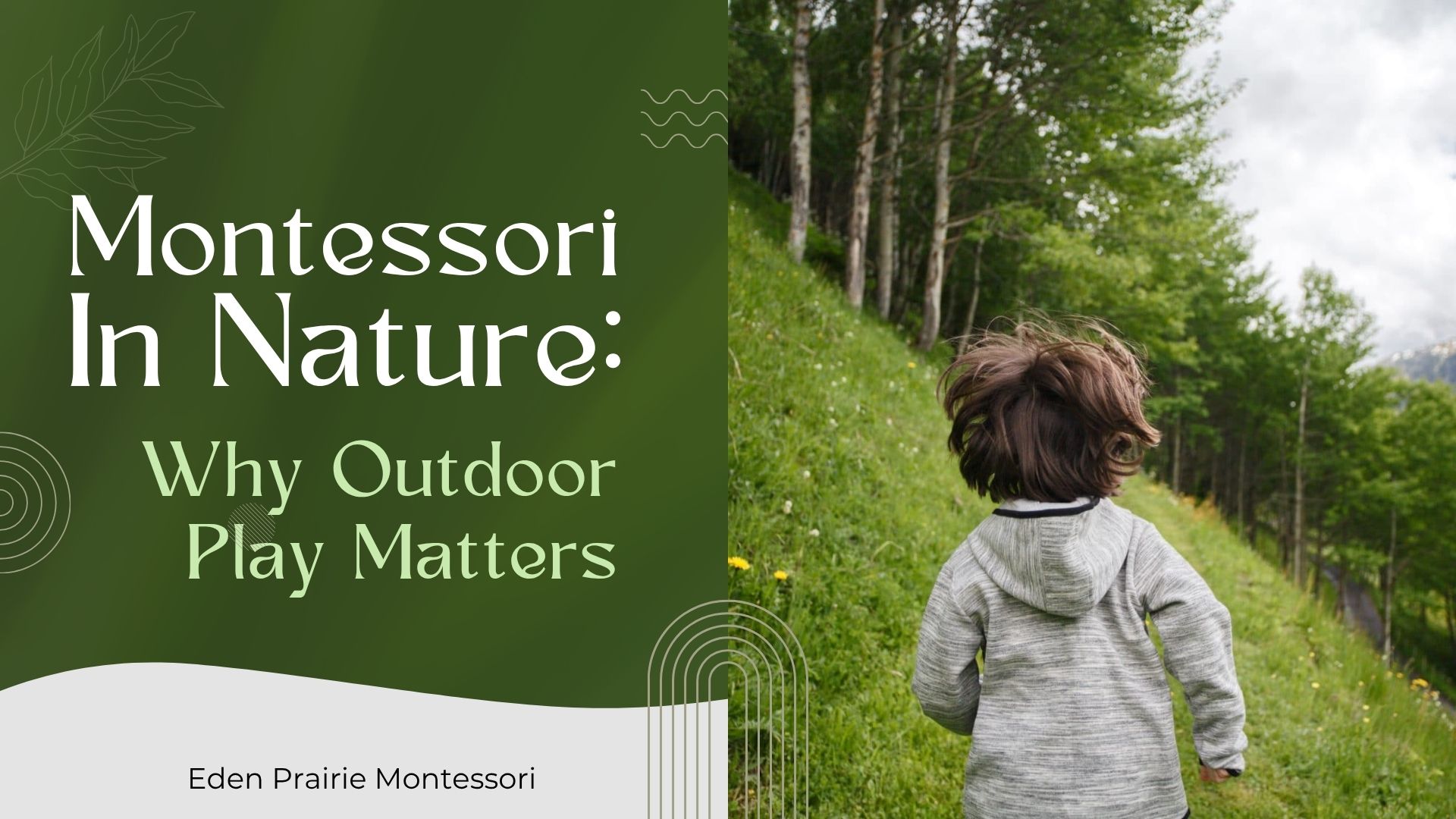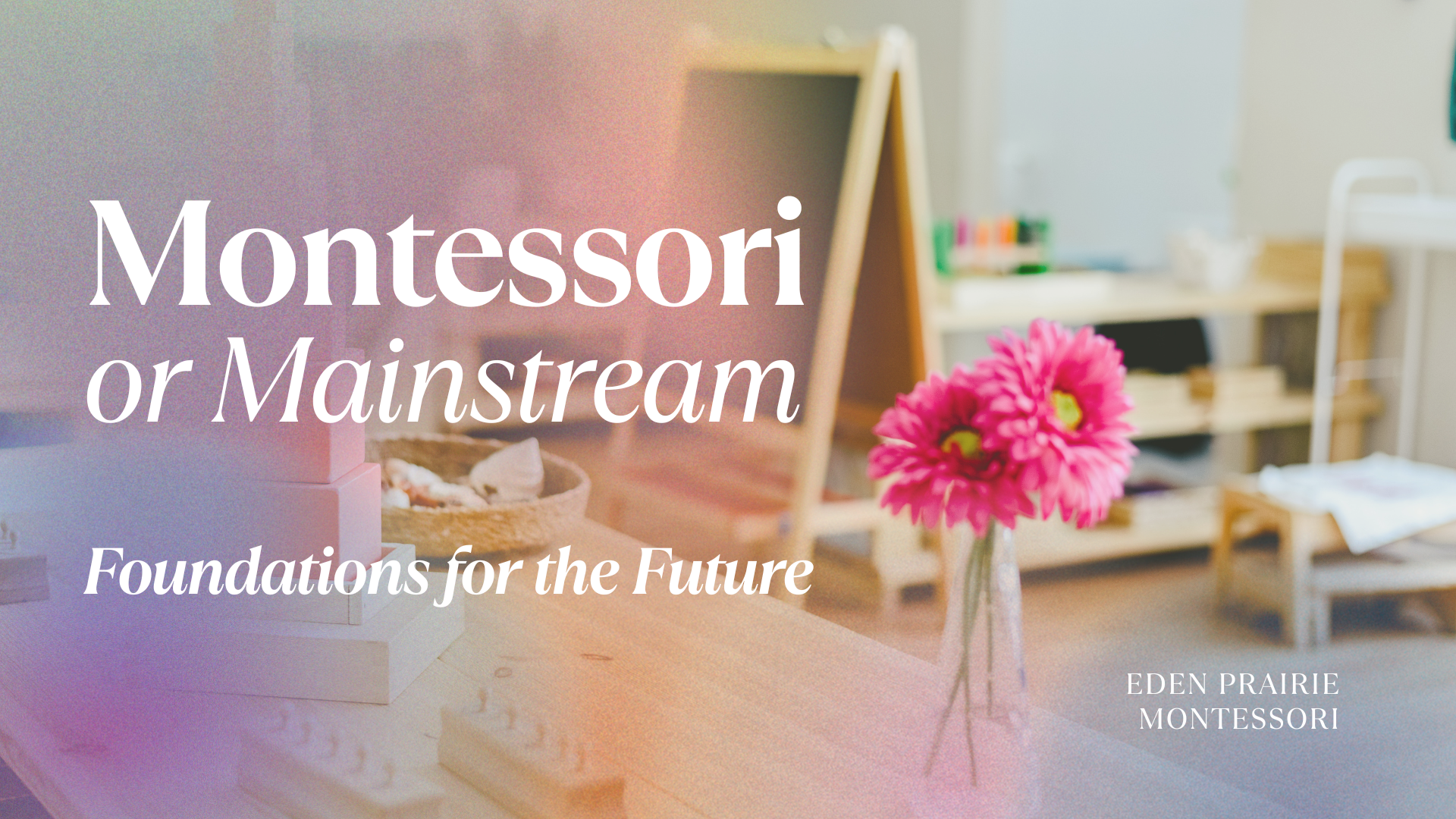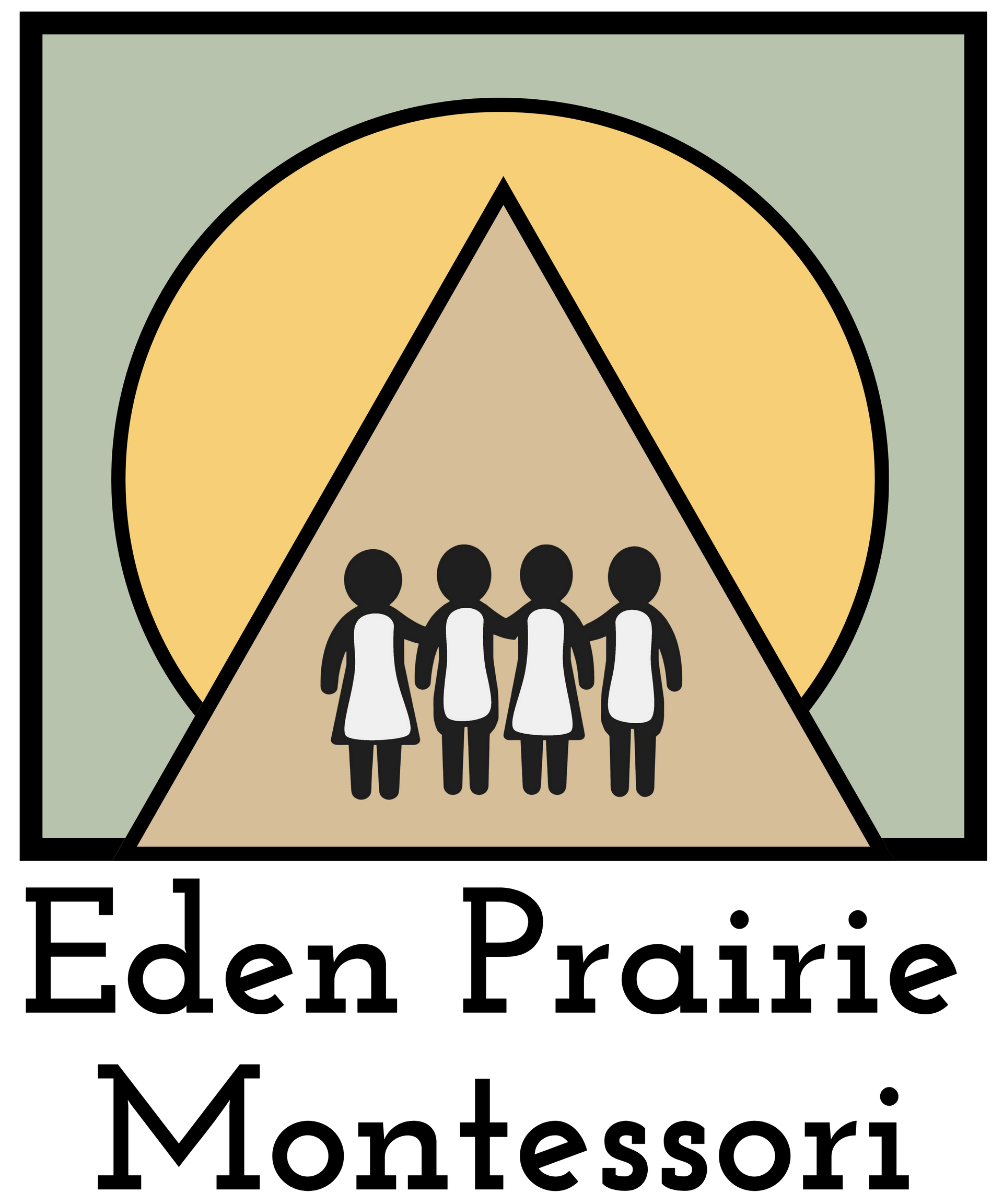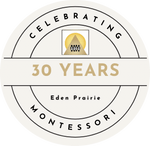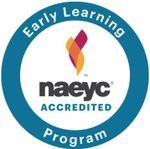Eden Prairie Montessori Learning Blogs
What Does It Mean To Be A Montessori?
If you are new to Montessori education, often the first question you might ask is “what makes Montessori different?” The Montessori Method is a philosophy that respects and protects the uniqueness of each child. Dr Maria Montessori believed that children should not be compared to norms or standards that are measured by the traditional systems. This method aims at learning without restrictions or criticism. Central to the Montessori Method is the joy of learning. Where learning is fun and enjoyable it creates well-adjusted individuals with a purpose in life. Children who experience the joy of learning are happy, confident and fulfilled!
Here is a breakdown comparing traditional teaching methods with the Montessori Method, where we take a look at the main differences in their educational approach:
TRADITIONAL – Most teaching is done by the teacher, the teacher is center of classroom as the instructor.
MONTESSORI – Most teaching is peer teaching and modeling, the teacher prepares the environment with learning materials.
Younger children benefit most when learning from one another rather than an instructor. Through observation, age-appropriate materials, and self-paced learning, preschoolers are able to develop skills, learn appropriate behavior, and understand appropriate classroom conduct. Our instructors serve as facilitators for learning. Rather than leading classrooms, each instructor prepares age-appropriate Montessori materials and carefully monitors students and their progress. Dr. Montessori believed that teachers should focus on the child as a person, not on a daily lesson plan. Montessori teachers lead children to ask questions, think for themselves, explore, investigate, and discover. Their ultimate objective is to help their students to learn independently and retain the curiosity, creativity, and intelligence with which they were born.
TRADITIONAL – Same age grouping.
MONTESSORI – Mixed age grouping.
Each child learns individually and with peers in a mixed age environment. Their peers reinforce positive habits, forming a supportive environment in which students benefit from each other and working in small partnerships.
TRADITIONAL – Social development emphasis.
MONTESSORI – Cognitive, Social, Emotional and Moral development emphasis.
Traditional schooling emphasizes social development whereas Montessori school promotes cognitive, social, emotional, and moral development. Students are more well-rounded as a result, giving them the skills they need for First Grade and all future learning.
TRADITIONAL – Curriculum is structured for the whole class.
MONTESSORI – Curriculum is structured for each child.
Children enjoy engaging in independent, purposeful work. Our facilitators and staff members are trained in the Montessori methodology to ensure each child receives the carefully prepared environment and age appropriate materials they need. The Montessori teacher works with one or two students at a time, advising, presenting new lessons and quietly observing student work.
TRADITIONAL – Teacher is primary enforcer of discipline and identifies errors in school work. Learning is reinforced externally by group repetition and awards.
MONTESSORI – Child emphasizes inner discipline and identifies own errors from feedback from the educational material. Learning is reinforced internally by individual repetition with learning materials and an internal feeling of competence.
Through our adherence to the Montessori method, we promote inner discipline, instruction, and feedback from learning materials. Children are then able to self-correct based on previous mistakes and reinforce their progress through individual repetition and an established feeling of competence.
TRADITIONAL – Group and some individual instruction, group sets learning pace. Child is taught concepts by the teacher and is generally allotted specific instructional time.
MONTESSORI – Mainly individual instruction, child sets own learning pace. Child internalizes concepts through exploration of educational materials, time is self-paced and usually continues with an activity for an extended period.
Traditional classrooms are instructor-centric and involve a general curriculum taught to the entire group at once. For children, this environment is impersonal and often stifles learning, producing inferior developmental and educational outcomes. The Montessori method stands in direct contrast, promoting a child-focused, self-paced learning environment for well-rounded development. The Montessori child is encouraged to follow what interests him the most. The child is free to work and learn in the classroom at his own pace and at their own level of understanding without any interruptions. This is what makes a Montessori classroom non competitive. There is no pressure nor stress or time limits to adhere to. Each child is guided through their own natural pathway of development individually. Children are encouraged to think independently and act as a member of a social group. This is achieved, within clearly defined boundaries, through the freedom the children have of movement, of interaction and association, and the freedom they have to choose their own work and to learn at their own pace
TRADITIONAL – Child usually assigned own chair, encouraged to participate, sit still and listen during group sessions.
MONTESSORI – Purposeful movement in the classroom is encouraged and believed to be an aid to learning.
Our program at Eden Prairie Montessori allows students to naturally socialize, concentrate, and interact with their environment and others. In the Montessori classroom you will find not only freedom of movement, but children using movement to enhance their learning and understanding. Children independently walk about, carefully avoiding floor mats that friends are working on, transitioning freely from indoor to outdoor space, choosing to go to the toilet or have a snack without needing to ask permission. When movement is part of the learning activity, children are more focused and engaged, and understanding deepens.
TRADITIONAL – Paper and pencil approach to learning.
MONTESSORI – Multi-sensory learning materials for physical exploration.
We use fun activities to stimulate classroom learning including painting, coloring, tactile activities, story time, reading, and outdoor playtime. We expose children to science, art, music, international topics, nature, and more! With age-appropriate activities, we promote an environment that isn’t just fun, but that is critical to development and growth as well. Through each activity, your child will develop useful development skills to help them gain independence and care for themselves.
Parents interested in a Montessori education should compare a Montessori School and traditional preschool through in-person visits and take notes on the differences. Observe and evaluate each classroom, noting the quietness and order, material on the shelves, and the routine of the classroom. As always knowledge is power, and in this case we hope to empower you with all the information you need to make the right choices for your child when it comes to one of the most important decisions that you will ever make. Contact us to schedule a tour and learn more about the Montessori difference!
At Eden Prairie Montessori Learning Center, we’ve been carefully guiding children for over 20 years. To learn more about our child care center in Eden Prairie and programs, contact us at 952-260-0120 to book a tour and come see for yourself what a Montessori education is like!
To learn more about our Montessori programs & child care center in Eden Prairie, contact us at (952) 944-8466. We look forward to meeting you!
The post What Does It Mean To Be A Montessori? appeared first on Eden Prairie Montessori.



